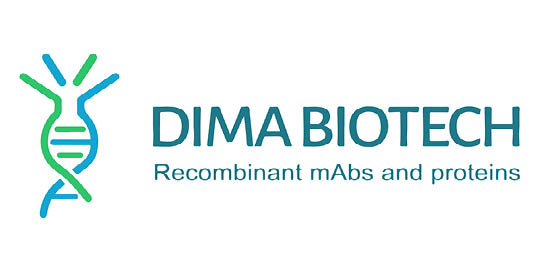Human PROKR1 Protein, hFc Tag
Human PROKR1 Protein, hFc Tag
Artikelnummer
DMAPME101175-50
Verpackungseinheit
50 µg
Hersteller
DIMA Biotechnology
Verfügbarkeit:
wird geladen...
Preis wird geladen...
Background: This gene encodes a member of the G-protein-coupled receptor family. The encoded protein binds to prokineticins (1 and 2), leading to the activation of MAPK and STAT signaling pathways. Prokineticins are protein ligands involved in angiogenesis and inflammation. The encoded protein is expressed in peripheral tissues such as those comprising the circulatory system, lungs, reproductive system, endocrine system and the gastrointestinal system. The protein may be involved in signaling in human fetal ovary during initiation of primordial follicle formation. Sequence variants in this gene may be associated with recurrent miscarriage. [provided by RefSeq, Aug 2016]
Description: Recombinant Human PROKR1 Protein with C-terminal human Fc tag
Molecular Weight: The protein has a predicted molecular mass of 33.1 kDa after removal of the signal peptide. The apparent molecular mass of PROKR1-hFc is approximately 35-70 kDa due to glycosylation.
Storage & Shipping: Store at -20°C to -80°C for 12 months in lyophilized form. After reconstitution, if not intended for use within a month, aliquot and store at -80°C (Avoid repeated freezing and thawing). Lyophilized proteins are shipped at ambient temperature.
Tag: C-Human Fc Tag
Expression Host: HEK293
Formulation & Reconstitution: Lyophilized from sterile PBS, pH 7.4. Normally 5 % - 8% trehalose is added as protectants before lyophilization. Please see Certificate of Analysis for specific instructions of reconstitution.
Target: PROKR1
Uniprot ID: Q8TCW9
Usage: Research use only
Molecular Characterization: PROKR1(Met1-Lys62) hFc(Glu99-Ala330)
Purity: The purity of the protein is greater than 95% as determined by SDS-PAGE and Coomassie blue staining.
Description: Recombinant Human PROKR1 Protein with C-terminal human Fc tag
Molecular Weight: The protein has a predicted molecular mass of 33.1 kDa after removal of the signal peptide. The apparent molecular mass of PROKR1-hFc is approximately 35-70 kDa due to glycosylation.
Storage & Shipping: Store at -20°C to -80°C for 12 months in lyophilized form. After reconstitution, if not intended for use within a month, aliquot and store at -80°C (Avoid repeated freezing and thawing). Lyophilized proteins are shipped at ambient temperature.
Tag: C-Human Fc Tag
Expression Host: HEK293
Formulation & Reconstitution: Lyophilized from sterile PBS, pH 7.4. Normally 5 % - 8% trehalose is added as protectants before lyophilization. Please see Certificate of Analysis for specific instructions of reconstitution.
Target: PROKR1
Uniprot ID: Q8TCW9
Usage: Research use only
Molecular Characterization: PROKR1(Met1-Lys62) hFc(Glu99-Ala330)
Purity: The purity of the protein is greater than 95% as determined by SDS-PAGE and Coomassie blue staining.

 English
English











